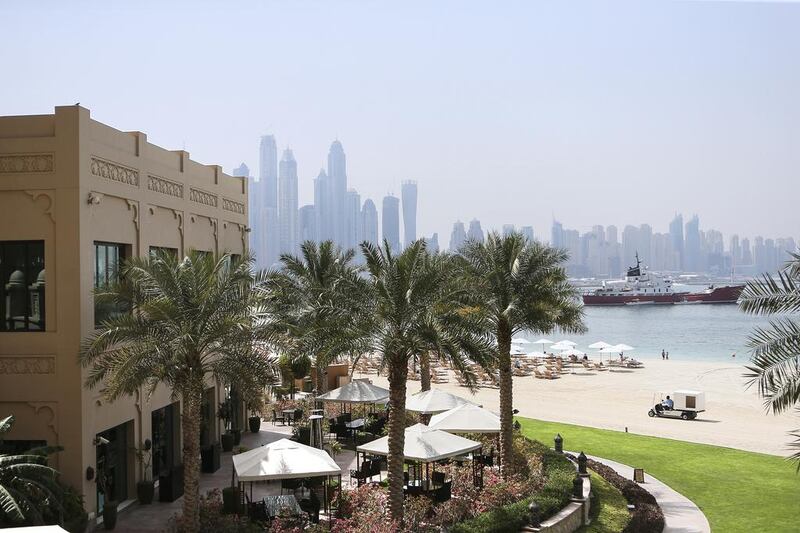Holiday homes are adding new capacity to Dubai’s hospitality industry amid declining occupancy rates and profit margins at hotels.
About 800 units have been registered with the emirate’s holiday home system, as 37 new hospitality operators entered the market, according to Dubai Tourism.
Dubai residents need the permission of their landlord and the Department of Tourism and Commerce Marketing to put a holiday home up for lease.
Airbnb, a rental website offering short-term accommodation, lists more than 1,000 rooms to rent in Dubai, with a current average nightly price of Dh381 per room.
Regulated holiday home operators are only part of the new supply of rooms in the emirate.
Tens of thousands of hotel rooms are expected to be added to Dubai’s tourism-led economy ahead of Expo 2020.
Dubai has about 65,000 hotel rooms, and aims to increase this figure to about 100,000 by 2020.
Hotel operators are expected to add 3,600 new rooms by the end of the year, most of which will be mid-range or cheaper, according to real estate consultancy JLL.
Increased competition from holiday homes is likely to hurt hotels that have suffered hits to their bottom line as tourism to the emirate slows.
Occupancy, revenues and profits are at a low ebb as declining global oil prices and the strong US dollar make holidaying in Dubai more expensive.
Economic woes in Russia and Ukraine– big tourism markets for Dubai – have also hit visitor numbers.
And there is a risk that financial headwinds in China could dent the double-digit growth rate of Chinese visitors to the emirate.
Monthly data from consultancy STR Global provided a boost to Dubai hotels last month, with revenue, capacity utilisation and profitability all increasing.
But the changing dates of Ramadan make it difficult to compare tourism figures for July last year and the same month this year.
Ramadan took place during the entire month of July last year, but it took place during just two weeks of July this year. That means that the seasonal increase in tourism took place during the second half of last month.
Piers Schreiber, a vice president of corporate communications at the Jumeirah Group, shrugged off the effect of Dubai’s slowing economy on the hotel operator.
“We have a very diversified customer base. As one market weakens, another strengthens. Even in previous downturns we have managed to maintain strong business returns,” he said.
abouyamourn@thenational.ae
Follow The National's Business section on Twitter






